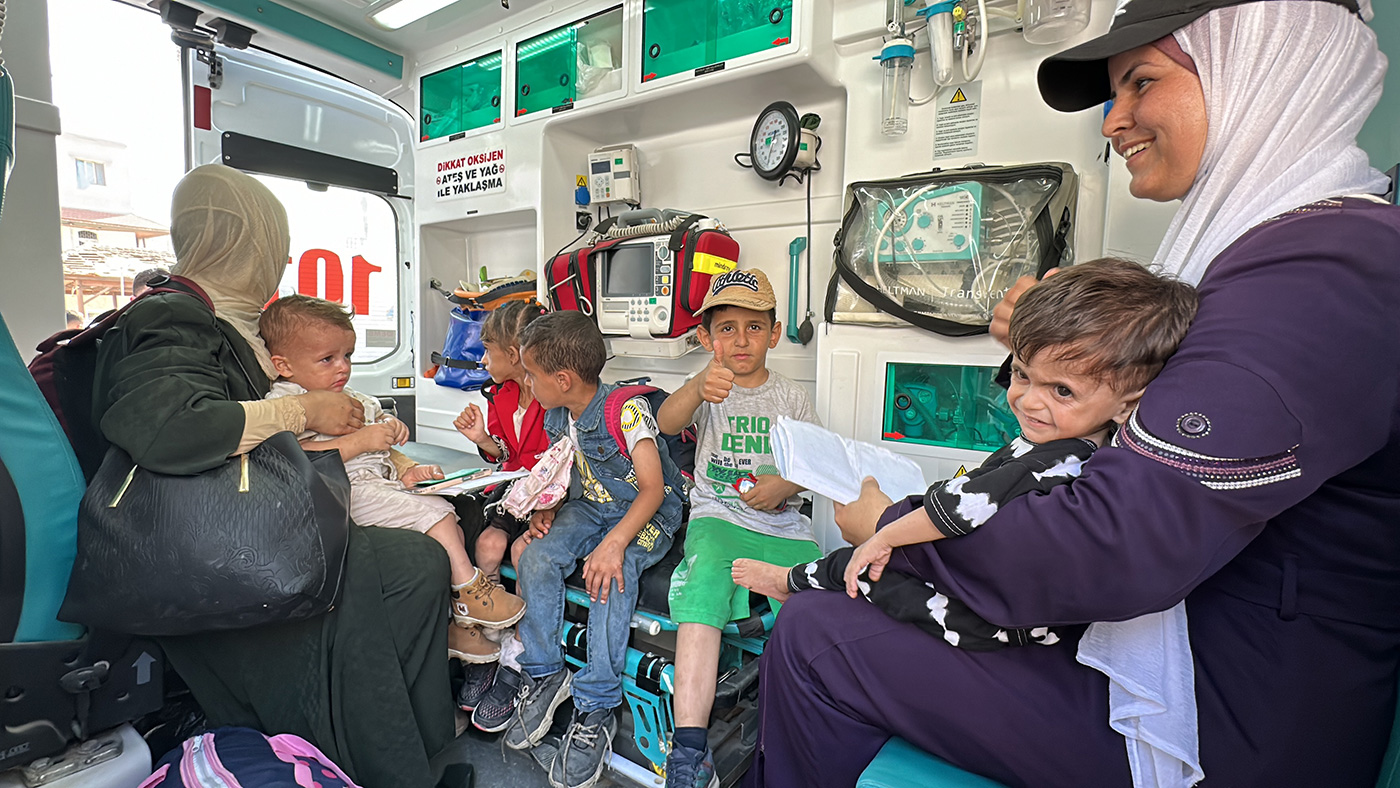
13 February 2025, Cairo, Egypt – As the world observes International Childhood Cancer Day (15 February), the World Health Organization (WHO) is highlighting the challenges faced by children with cancer in countries affected by conflict and emergencies.
In Lebanon, the occupied Palestinian territory, the Syrian Arab Republic, Yemen and other parts of the Eastern Mediterranean Region, children battling cancer face not only the harsh realities of their illness but the compounded struggles that arise from conflict, displacement and limited access to health care.
Childhood cancer is a leading cause of death among children globally. An estimated 400 000 new cases are diagnosed each year. While survival rates have improved dramatically in high-income countries, the situation remains dire for many children in low- and middle-income countries where access to diagnostic services, treatment and support services is often severely limited.
WHO is working with governments and other stakeholders to address these challenges but the situation remains critical in the Eastern Mediterranean Region where conflicts and ongoing refugee crises have left many children with cancer without access to the lifesaving treatments they need. Hospitals are overwhelmed, there is a shortage of medical staff and many health care facilities have been damaged or destroyed.
In Gaza, hundreds of children need to be evacuated to neighbouring countries to receive lifesaving treatment, yet of the 405 children with cancer referred to pediatric facilities outside Gaza after the war erupted in October 2023, only 10 were approved with a companion. In some cases, children died before receiving approval.
The impact of conflict, especially on underprioritized areas such as childhood cancer, is also evident in countries with protracted emergencies. In Libya, for example, there is a severe shortage of trained oncology specialists, with just 0.82 medical oncologists and 0.2 radiation oncologists per 100 000 people, leaving many children without access to lifesaving care.
Conflict disrupts supply chains, leading to frequent shortages of essential cancer medications. For children, these disruptions can be fatal. Interrupted treatment drastically reduces survival rates. In some areas, critical services like bone marrow transplants have been halted due to systemic failures, further limiting options for patients.
WHO and its partners are focused on improving access to childhood cancer care in conflict-affected areas of the Eastern Mediterranean Region, through the provision of medical supplies, support of local health care systems and the training of health care workers, WHO is working to ensure that no child’s life is cut short due to a lack of care or resources.
“To address the chronic disruption of childhood cancer services in humanitarian contexts, one critical initiative would be to establish specialized cancer treatment units in areas where health care infrastructure is compromised. WHO is also working to establish mobile clinics that can reach displaced children in remote or hard-to-reach areas and provide psychological support for children and their families,” says Dr Asmus Hammerich, Director, Noncommunicable Diseases and Mental Health at the WHO Regional Office for the Eastern Mediterranean.
In the face of these challenges, global efforts to strengthen childhood cancer care in the Region offer hope. The Global Platform for Access to Childhood Cancer Medicines, currently being piloted in Jordan and soon to be implemented in Pakistan, is a major step forward towards ensuring a seamless supply of essential medicines for children with cancer. The collaboration between WHO and St. Jude Children's Research Hospital – within the framework of WHO’s Global Initiative for Childhood Cancer – has elevated the profile of childhood cancer care, driving improvements in 10 countries across the Region. These initiatives are essential in bridging gaps in treatment access and improving survival outcomes.
A manifesto on improving cancer care in conflict-impacted populations, released by WHO Director-General Dr Tedros Adhanom Ghebreyesus, outlines strategic approaches to ensure more equitable outcomes for patients and their families, including the creation of a dedicated working group to develop actionable interventions that sustain cancer care.
The manifesto’s 7 key recommendations urge countries to advance inclusive strategies and care models for cancer patients in humanitarian settings, address the complexity of cancer disease entities, the specific requirements for palliative care, and the distinct needs of different age groups, such as children with cancer and blood disorders, share emerging best practices, and recommendations, and incorporate such content into relevant WHO reports such as the WHO Global Status Report on Cancer 2025, and establish cancer care as a core pillar of emergency response plans in all conflict settings.


